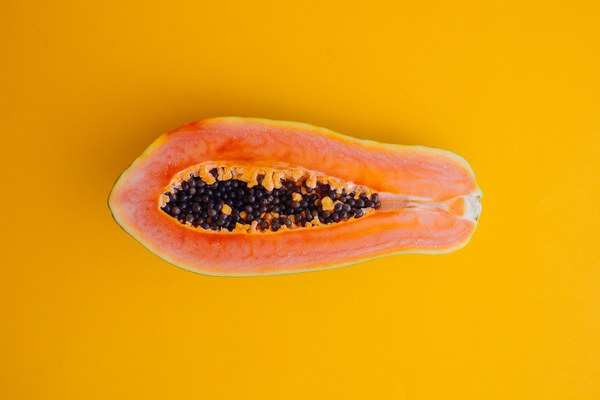Why You May Feel Hungry After Drinking Gastric Tea Unraveling the Mystery
Gastric tea, known for its soothing properties and ability to aid digestion, has become a popular choice among individuals seeking relief from gastrointestinal discomfort. However, many people have reported feeling unusually hungry after consuming this herbal tea. This article aims to unravel the mystery behind this phenomenon, exploring the reasons why drinking gastric tea might lead to increased hunger.

1. Stimulating the Appetite
Gastric tea is often rich in certain herbs and spices, such as ginger, peppermint, and fennel, which have been traditionally used to boost digestion and appetite. While these ingredients can help alleviate symptoms of indigestion and bloating, they may also stimulate the appetite in some individuals. The increase in hunger can be attributed to the natural effects of these herbs, which work by increasing the production of digestive enzymes and improving the overall function of the gastrointestinal system.
2. Fluctuations in Blood Sugar Levels
Another possible reason why drinking gastric tea might lead to increased hunger is the impact it can have on blood sugar levels. Some herbal teas, including gastric tea, contain compounds that can cause fluctuations in blood sugar levels. When blood sugar levels drop, the body may signal an increase in hunger as a means of replenishing energy reserves. This is particularly true for individuals with a sensitive metabolism or those who are prone to blood sugar imbalances.
3. Hydration and Reduced Appetite
Contrary to the belief that drinking tea can reduce appetite, some individuals may experience an increase in hunger after consuming gastric tea due to its high water content. While staying hydrated is essential for maintaining a healthy appetite, excessive water intake can dilute stomach acids and slow down digestion. This may lead to a temporary decrease in appetite, but once the body's hydration levels are restored, the appetite can return, resulting in an increased sensation of hunger.
4. Psychological Factors
Psychological factors can also contribute to the feeling of hunger after drinking gastric tea. The act of sipping tea, especially if it is a comforting and soothing experience, can trigger the release of certain neurotransmitters in the brain, such as dopamine and serotonin. These neurotransmitters are associated with feelings of pleasure and satisfaction, which can indirectly influence appetite regulation. Additionally, the taste and aroma of the tea may evoke associations with food, further stimulating the appetite.
5. The Interplay of Ingredients
The specific combination of ingredients in gastric tea can also play a role in the feeling of hunger. For instance, certain herbs, such as chamomile and valerian root, have been known to have a calming effect on the nervous system, which can sometimes lead to an increased appetite. Furthermore, the presence of caffeine in some herbal teas can also contribute to an increased sense of hunger, as it stimulates the central nervous system and may disrupt normal appetite regulation.
In conclusion, several factors can contribute to the feeling of hunger after drinking gastric tea. These include the stimulating effects of certain herbs, fluctuations in blood sugar levels, hydration and digestion, psychological factors, and the interplay of various ingredients. While this phenomenon may be unsettling for some individuals, it is important to remember that the benefits of gastric tea, such as improved digestion and relief from gastrointestinal discomfort, often outweigh the temporary increase in hunger. As with any dietary changes, it is recommended to consult with a healthcare professional to determine the best approach for your individual needs.









